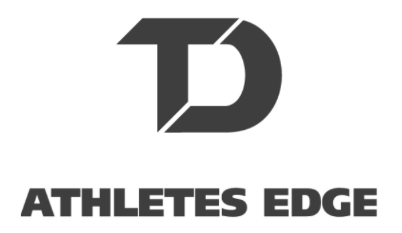RED MEAT: VILLAIN OR HERO?

The red meat debate is a highly polarizing topic that can quickly and easily create divisions. The latest chapter in this dispute is an objective review by Aaron E. Carroll recently posted on The Upshot of the New York Times titled "Red Meat is Not the Enemy". You probably already know that I grew up on a dairy/beef farm in New England, that I was nicknamed "Grass-Fed Tim" by the basketball player formerly known as Ron Artest, and that I once purchased an entire cow from The Heart & Trotterith Laker Robert Sacre and former Laker Chris Kaman. That should explain why this article in the New York Times caught my attention, what really impressed me after reading it is the potential it has to help mediate the epic red meat controversy. It inspired me to bring my thoughts to the table on how to defuse the great red meat debate.
Anti-Red Meat
The skeptics out there keep people honest and their careful criticism can help to prevent blindly following something before it is carefully researched and understood. Red meat prophets of doom exist around every corner today. I respect their passion and trust me, I have heard from plenty of them. When news broke that a few of our Lakers players (Chris Kaman and Robert Sacre) and I had decided to split the purchase of a whole 100% grass fed cow in 2013, the cynics lined up.

After that, I heard from the red meat doubters in a way that was everything short of an intervention. I know you, our reader, listen and look closely at the best practices related to good health so you have probably memorized the standard list of negative health effects that eating red meat SUPPOSEDLY brings. Here is a quick review:
-
Cardiovascular Disease
-
High Cholesterol
-
Weight gain or obesity
-
Cancer
This is not the complete list of warnings from the the red meat naysayers but I wanted to narrow it down a bit to the big hitters for this discussion.
Evidence
I'm not here to dig my heels in, roll my sleeves up, and forcibly justify why Chris Kaman, Robert Sacre and I bought an entire cow. I do, however, want to chew on the evidence surrounding the above list of adverse health effects linked to eating red meat. The only problem with "chewing" on the evidence behind this list is that I tried and now I'm starving - there isn't much on that plate.
There is no need for me to do a walk-through analysis of individual research articles suggesting that eating burgers, steaks and hot dogs are either good or bad. That was done masterfully in the article under discussion titled "Red Meat is Not the Enemy". This topic has also been covered with precision HERE and by my friends at Mark's Daily Apple.
The research studies that suggest that red meat consumption is dangerous are loaded with fatal flaws:
- Link but no cause. They are primarily observational in nature versus the research gold standard - randomized control trials. Observational studies can show a link between two or more variables but can't prove that one variable directly causes the other. When you look at red meat studies of higher quality the connection to health risk is simply not there.
- Other factors. Observational studies do a poor job of teasing out all of the other lifestyle choices that can increase health risks. Subjects of these studies often smoke, drink, eat lots of sugar and/or consume inflammatory oils at steady or high rates. It is a shame when these habits are not correctly accounted for while red meat takes the blame.
- All red meat is created equal. The studies try to lump all red meat together and do not take into account the differences between processed, conventional, organic, or grass-fed red meat. This is a case of apples and oranges because meat from animals that are pastured/grass-fed and/or organic can't be fairly compared to highly processed, CAFO style meat.
- Cooked well done. I know you never cook your beef beyond medium rare because you are a stud in the kitchen but over-cooking, charring or burning red meat is a major offensive foul!vercooked red meat is not only ruined from a taste/enjoyment standpoint but potential carcinogens are created while the healthy nutrients are destroyed. Low and slow cooking is a great way to avoid overcooking at high temperatures. Various cuts of red meat lend themselves perfectly to being cooked low and slow in a crock-pot or other slow cooker. Pass this quick lesson in how to cook grass-fed beef the right way from MD and metabolic expert Dr. Cate Shanahan along to all of your friends who are scorching their beef - they will thank you.

My take
Plenty of resources have highlighted the nutritional benefits that red meat presents with (especially the grass-fed version) so let's just take a quick look: protein, Vitamins A & E, B-Vitamins, Potassium, Phosphorus, Zinc, Selenium, Iron, Creatine, Carnosine, omega-3s, and healthy CLA fatty acids. That seems like a long list to me but it doesn't mean I'm recommending that we eat red meat at every meal either. Based on overwhelming evidence, I believe that red meat has tried and true benefits and that people should not be scoffed at when they enjoy it responsibly. Responsible consumption of red meat requires that we pay close attention to it's source - grass-fed and grass-finished is best. How you cook it makes a big difference too - avoid turning your steaks and burgers into crispy hockey pucks. Red meat is neither villain nor hero but is delicious when enjoyed in moderation with fresh, local vegetables.
References:
Carroll, A. (2015, March 30). Red Meat is Not the Enemy. Retrieved March 31, 2015.
Chemicals in Meat Cooked at High Temperatures and Cancer Risk. (2010, October 15). Retrieved March 31, 2015.
European Prospective Investigation into Cancer and Nutrition. (n.d.). Retrieved March 31, 2015.
Gunnars, K. (n.d.). Grass-Fed Beef vs Grain-Fed Beef - What's the Difference? Retrieved March 31, 2015.
Gunnars, K. (n.d.). Is Red Meat Bad for You or Good? An objective look. Retrieved March 31, 2015.
McMenamin, D. (2013, October 7). Why Kaman and Sacre Bought a Cow. Retrieved March 31, 2015.
Shanahan, C. (2011, August 24). Here's How to Cook Grass-Fed (aka Pasture-Raised) Steak. Retrieved March 31, 2015.
Sisson, M. (2014, June 30). Dear Mark: Red Meat and Breast Cancer, Net Carbs, and Solutions for Excess, Unavoidable Sun. Retrieved March 31, 2015.
GET YOUR GRASSFED BEEF DELIVERED TO YOUR DOOR WITH BUTCHERBOX!
***Be sure to use special code "tim10" to claim 2 FREE tri-tip steaks and $10.00 off when you order: https://www.getbutcherbox.com/tdathletesedge-fans/
The way animals are raised has a major impact on how nutritious the meat is that they provide. Unfortunately consistently finding properly sourced meats can be a real pain. I'm pumped to say that ButcherBox is the solution to your frustrating search for grass-fed, humanely raised meats!
I'm always down for a great place to find perfectly sourced, affordable meats but ButcherBox goes next level. They will deliver 100% grass-fed beef and other meats that are responsibly raised/sourced straight to your doorstep!!
It's easy, affordable, healthy, AND you get free product/$10.00 off with the special TD Athletes Edge fan code: "tim10"
Enjoy,
TD
Like what you read?
Sign up now to get the latest tips and advice
Tim DiFrancesco, PT, DPT, ATC, CSCS is the Head Strength & Conditioning Coach of the Los Angeles Lakers and founder of TD Athletes Edge. He is nationally renowned for his evidence-based and scientific approach to fitness, training, nutrition, and recovery for athletes and fitness enthusiasts.
For training and nutrition advice, follow us on:
• Twitter http://twitter.com/tdathletesedge
• Facebook http://www.facebook.com/tdathletesedge
• Instagram http://instagram.com/tdathletesedge
• YouTube https://www.youtube.com/user/tdifranc1
• Sign up for our newsletter and follow our blog at http://www.tdathletesedge.com
ABOUT THE AUTHOR

Tim DiFrancesco, PT, DPT spent 6 seasons as the Head Strength & Conditioning Coach of the Los Angeles Lakers and is the founder of TD Athletes Edge. He is nationally renowned for his evidence-based and scientific approach to fitness, training, nutrition, and recovery for athletes and fitness enthusiasts.
